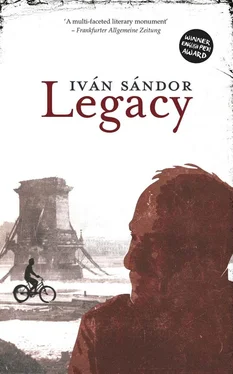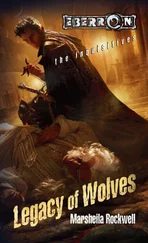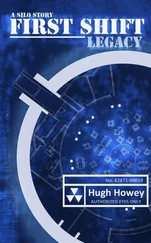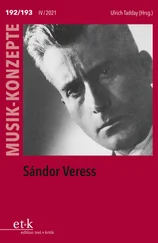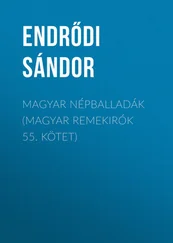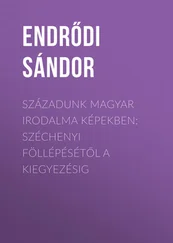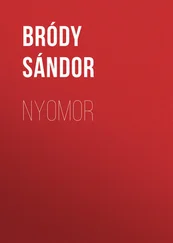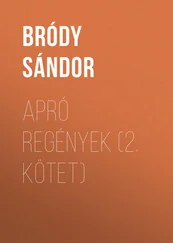We are used to the drone of aircraft, the detonating bombs and the sound of anti-aircraft batteries, and we no longer even notice the sirens sounding air-raid warnings and the all-clear.
Mother tidies the blanket on us and tucks the coats under me just as she used to do with my coverlet when I was a small boy. Vera, before she goes to bed, pulls on another pullover and an extra pair of warm knickers.
Mother says that tomorrow night we may go down into the cellar after all.
I have a dream about walking with Vera along Francia Road. Two men with submachine guns are coming the opposite way from Thököly Road and they fire a burst at us. I grasp her hand; she has been hit by at least three rounds, with holes as big as a fist in her winter coat, in mine, too, not the windcheater nor the braided duffel coat but a pale-grey herringbone spring coat of English cloth. My grandfather had a coat like it, and I am sorry that I have ruined it. Vera laughs as she looks at the holes. I am now moving along streets with Vera that I had not previously been in. There are many people on the pavements, some watching with interest, some unconcerned, some who follow us, and when that happens we disappear only to carry on somewhere else.
Vera turns so that now we are lying face to face, and she places her head on my shoulder.
Jolán Bors makes an appearance and gives me a square from a bar of chocolate; Mrs Ulbert then comes and guides us into a corner of a cellar, which is just like the workshop on Francia Road. We make our bed on the bag-gluing table, with Vera leaving only her petticoat and knickers on, breathing heavily on my shoulder. She pulls my hand down between her thighs and jiggles it while holding on to my wrist. Do that, she pants, more, now. Oh! Never before have I heard her give such a cry of dismay. I am scared that it will wake my parents up, and they will rush in from the next room. It wasn’t so much that her voice was terrifying, more that it broke off. She sat up as if she were looking for someone, for the person who had stifled her cry.
In the morning we have a hard job disentangling ourselves from under the blanket and coats. Vera avoids my look. I stand in front of her. What’s up, then? she asks. Did you sleep well? You didn’t wake up even once?
Father says that we’ll all freeze up here; it’s better we go downstairs after all, so we pack.
In the stairwell there are shouts.
They’re here! They’re here! Line up!
From Pannónia Street I started off by heading for the Comedy Theatre, Gizi told Mother, but there were guns down by the Outer Circle, one of them at the theatre’s entrance, so I went back to Sziget Street. 9Gizi wanted to cross the Outer Circle and get back to Szabadság Place by the Parliament building, says Mother.
No light was filtering out of windows. A few people were racing towards the Outer Circle, bursts of submachine-gun fire from Pozsonyi Road. At the corner with József Katona Street a group was being escorted by three Arrow Crossers with submachine guns. Gizi wants to cross to the other side of the road, but one of the Arrow Crossers grabs her by the arm and thrusts her into the line of captives. Gizi points to her ICRC armband and produces her papers. She is placed next to two elderly men; the others are herded away toward Pozsonyi Road, two streets closer to the Danube. One of the men gives a wave of exasperation and, on the orders of the Arrow Crosser, sets off after the group. Gizi tells the machine-gunner to take her to the officer in command; he has violated diplomatic identification papers and will be answerable for that. On the orders of Herr Carl Lutz, the Swiss Vice-Consul, the man standing beside her had to be taken to the Swiss Legation. That very afternoon Carl Lutz had negotiated with Major-General Gyula Sédey, the police commissioner for the city, she says to the young Arrow Crosser, and Herr Lutz’s actions were taken with the commissioner’s consent.
The Arrow Crosser hares off after his superior.
Gizi pushes the elderly man into the doorway of the yellow-star house from which he had been led. Two bursts of submachine-gun fire strike the wall next to her; the Arrow Crosser is racing back. Gizi says that she does not know what happened to the elderly man. The Arrow Crosser leads her off to the group walking to Pozsonyi Street. At the head is a first lieutenant with an Arrow Cross armband. Gizi shows him her papers, but the first lieutenant looks at her rather than at the papers. He is tall, slim and has a wound on his chin; his cape is immaculate, white kid gloves, holster on his belt. He salutes Gizi and gives her back the papers. Madam, if I am not mistaken, you are Jewish, aren’t you? he says. Gizi protests with a laugh. Begging your pardon, madam, the first lieutenant says, don’t play games with me. You are Jewish. In our family we can spot the racially pure at a glance.
Gizi is wearing a dark-blue beret. With her right hand she sweeps her shoulder-length hair behind her ear then again holds out her diplomatic identification card to him. Madam, I will say it once again, there are some things a person can sense. He makes a sign to the armed men, and the procession moves off. The first lieutenant then steers Gizi over to a nearby house, which has an Arrow Cross sign on the doorway. According to this the Party has an office in the basement. A small bedsit apartment. The officer leads her in and takes off the white kid gloves; he undoes the belt and places it on a chair. On the wall is a framed portrait of Ferenc Szálasi.
Would you be so kind as to take off your clothes, madam.
Gizi takes off her three-quarter-length fur coat, the first lieutenant his cape. He has six medals on his tunic. Gizi spots an Iron Cross.
If you wish, madam, I shall turn away until you have undressed. Don’t worry, you will get to the Swiss Legation by midnight.
At that the first lieutenant turns away.
Gizi reaches for the pistol, but the first lieutenant senses that and throws himself at her. She shoots point-blank at his brow. She pulls the trigger twice. She puts on her fur coat and adjusts the armband. The street is empty. There are bursts of submachine-gun fire from the direction of the river. Ack-ack guns at Margit Bridge are firing at dive-bombing aircraft. Nearby houses are on fire. Sneaking from one doorway to the next Gizi reaches Szabadság Square. A police sentry has been posted to the entrance of the building of the Swiss Legation’s Department of Foreign Interests. She finds just one typist in the office, about twenty-five years old and wearing heavy-framed spectacles. She is sitting terrified in one corner. Gizi recognizes her and knows that she had come to the country two years ago from a Swiss village and had learned to speak Hungarian fairly well, not withstanding which she asks if she might talk in German. It may be because she’s panicking, Gizi supposes. Herr Lutz was unable to get back from Buda and had charged Herr Feller, the legation’s first secretary, with taking over business, but his car had been held up by the Arrow Crossers. From the window she had seen them taking him away.
Gizi goes to the bathroom and moistens her temples. She finds a bottle of cognac in a writing desk and asks the typist if she would like a glass. The young woman shakes her head. Gizi swigs from the bottle. She sits down in an armchair, and they look at each other without saying anything. Gizi then gets up and dials the number of Lutz’s quarters in Buda. A woman’s voice announces that the Vice-Consul is unable to take telephone calls at the moment. Gizi asks for Gertrud. Darling, I’m so relieved to hear from you … Gizi interrupts to ask her to get a message to Carl that Arrow Cross assault units are taking people off to the Danube from houses under Swiss protection in the international ghetto, St István Park, Tátra Street and Pannónia Street. He needs to go there at once.
Читать дальше
